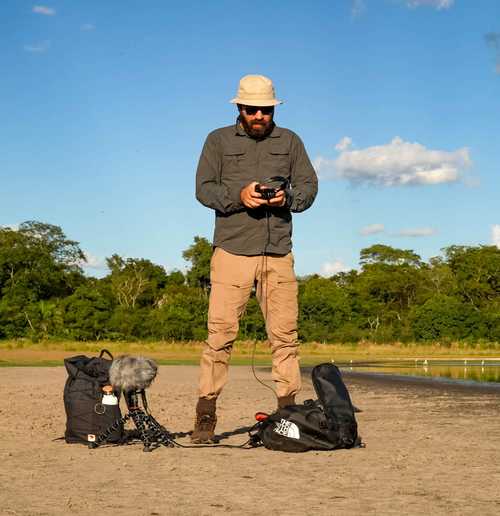
Contrary to popular belief, there are many ways to make money with field recording besides sound effects library creation.
Libraries are actually quite challenging to get right because of the amount of work required. Additionally, competition is much more serious since barriers to entry have gotten lower and the market has become saturated.
About the author
Here are a few words about myself and what qualifies me to give advice on this topic. I started my career in audio from zero around 15 years ago and I’ve been working as a sound designer, field recordist and composer ever since. I’ve worked as sound recordist on films like Dune Part 2 and Mufasa: The Lion King among others.
I’ve recorded and designed audio for Horizon Forbidden West, and my work has been heard in productions such as Planet Earth 3, House of the Dragon and The Territory.
I work with brands such as Sennheiser, Sony, Rycote and many others, testing their equipment on my expeditions and advising them on product design. In 2022 I was nominated for Bafta and Golden Reel awards along with the Guerrilla Amsterdam audio team. More about me on my website.
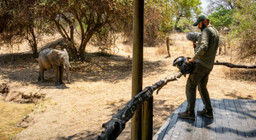
Getting started with field recording
While field recording is not a new discipline (it goes back to John Muir and even earlier), it’s not as popular or well known as photography for example. As a result, it takes a more entrepreneurial and self-starting approach to get work gigs as a field recordist.
Especially in the beginning of your career, you will have to chase the jobs before clients start chasing you (a large part of the projects I’ve worked on have been the result of weeks and months of work planning expeditions and preparing pitches). Here are some things that will help you get these projects.
How to get field recording commissions?
1. Market yourself
When I say market yourself, I don’t mean paying for ads on social media or chasing people at conferences while waving your business card. These methods may have worked many years ago, but they’re not going to help much anymore. Luckily we aren’t in finance or politics so we can be creative.
🎬 Field recording behinds the scenes 43 – Recording desert sounds in the Sahara
🎧 Dawn chorus in the African savanna – Nature and wildlife sounds
Good marketing isn’t about selling all the time, it’s projecting an image that people want to see and telling stories that people want to hear. Of course these have to be rooted in reality and you can’t just make them up. You also need to be consistent and to steer clear of jumping on the latest algorithm trends.
A good marketing strategy takes years to fine tune and the results won’t materialise immediately. You have to find what your Unique Selling Points are and what niche you want to fill. This raises even more complex and existential questions, like what makes you you, how you became that person, how your journey has influenced your career and mindset etc. At times it will seem like therapy or philosophy rather than boring marketing, but I promise it’s worth the time and energy you spend doing this.
You will need to decide how much of these very personal aspects you want to share, how much it will just be implied and where you draw the line. You will need to come up with keywords, brand guidelines, visual identity, etc. You will benefit from hiring professionals for at least some of these aspects. Even so, not all of this information will be accessible right away, but the more of this work you do early on, the better your clients will respond to it.
📍 What are some elements of a good marketing strategy? Solid and consistent web presence, separate showreels for different sides of your work, genuine and thoughtful updates on social media, being open and helpful are a few important ones. Good spoken and written language, storytelling, and visual design are some skills that you will have to develop. It helps if you can solve problems for other people. Being a specialist in your field, and projecting that image will pay dividends.
2. Pitch ideas
You should already be thinking about these things and coming up with ideas of your own, but the reason I’m including them is to make you aware that these are all valid:
- Recording nature ambiences or wildlife for a video game or film
- Testing a microphone or recorder in the field in unforgiving conditions
- Getting photos and videos of equipment in the field
- Writing about equipment
- Recording sound for and preparing a museum installation
- Recording material for a studio’s internal library
- Joining a documentary crew as sound effects recordist
- Advising a production studio on how to get good recordings in the field
3. Show that you can execute and deliver
In my experience as an audio professional, potential clients prefer to have proof that you can do what you say you can do. This doesn’t mean you should work for free or for peanuts (this is a different conversation). Years before I was approached to work on Mufasa: The Lion King, I started to organize my own expeditions to Africa so I could record African wildlife. Realistically, the chances of someone hiring me for such a project when I was just starting out were very slim. But my experience in the field on personal projects (and being able to show the results) made me much more attractive when my name came up in the conversation.
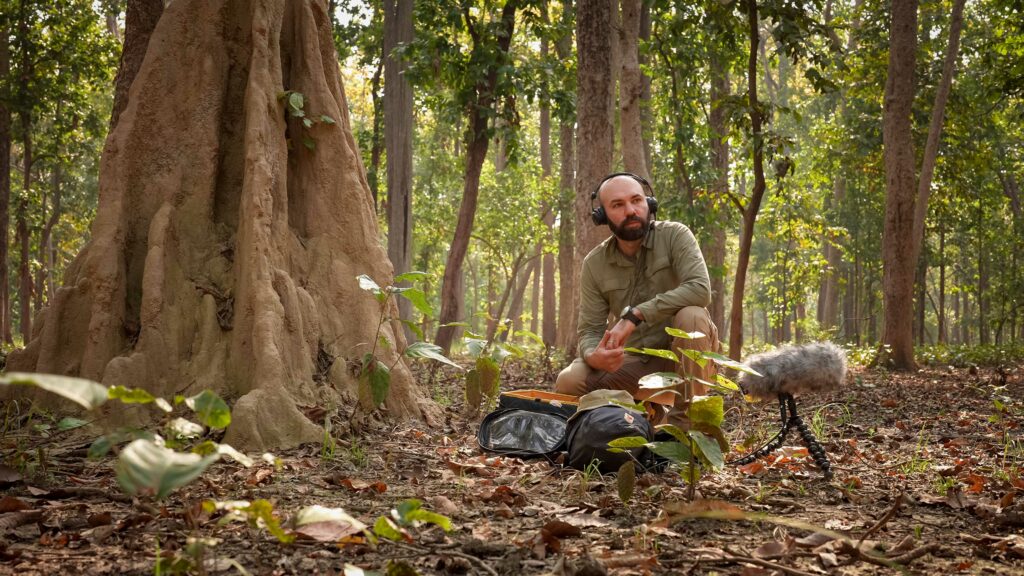
Of course, this example is not perfect. Organising expeditions to far away places is costly and risky. I didn’t start my journey in field recording by going to the Congo rainforest. My beginnings were much more humble and limited, taking the bus to a little patch of woodland outside Edinburgh or walking to the forest near my grandparents’ village in Romania to listen to the birds. Every step of the way happened organically and I kept reinvesting part of my profits into my work. I took things very gradually but never lost focus.
4. Ask for it
As mentioned in the introduction, you might do all of the above and still no one will get in touch with you. That’s no reason to worry – companies and brands have lots going on and you have to have a huge following or to be very well known to attract their attention. If no one is emailing you with offers, you have to approach them instead. Finding the right person to contact is more complicated than it seems though. I suggest attending conferences and trade shows where people are already in business mode. Strike up conversations and show genuine interest rather than saying three words and bombarding everyone with business cards.
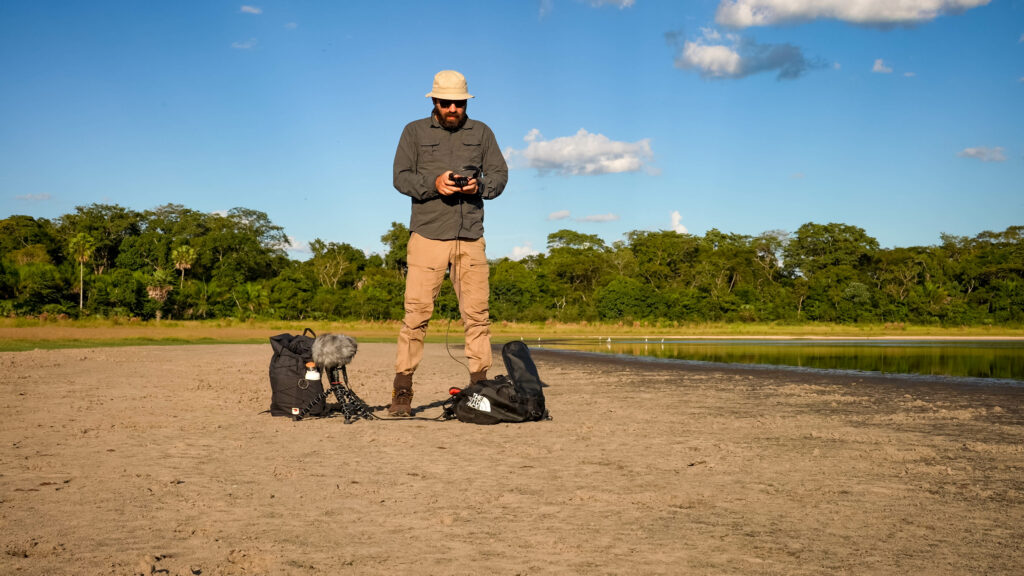
Getting clients interested can also be complicated. What works with some brands or companies might not work for others. There is no right way to do it, although some companies might have specific workflows for collaborations. You will have to approach lots of potential clients before you get the hang of it. You will also need to get used to hearing a lot of NOs before you get to YES. While emailing someone unresponsive a second time is good practice, I would advise against pestering them with lots of emails and calls.
When pitching to a client or brand, you will need some sort of deck or presentation to show. There’s an art to putting together a great, impactful pitch deck, and storytelling is key here. This is a topic for a different article so I won’t go into too much detail, but one thing that will help immensely is showing that you know what you’re talking about. You don’t have to have done the exact same thing you’re pitching, but a successful smaller scale expedition will go a long way.
5. Don’t be a jerk
Regardless of where you are in your career, or life for that matter, these are words to live by. It doesn’t matter who you’re interacting with, whether you feel you’ve been wronged, or if you think you should be acting in a certain way.
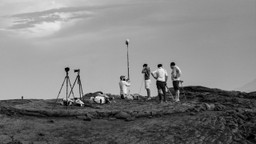
Being nice goes a long way and costs nothing. Being a person that others want to work and hang out with is huge. Conversely, being self-centred, overly negative or generally a jerk will guarantee that others will avoid you, potential clients or colleagues included.
I’m not saying you should be a pushover or that you should agree with everyone. Opinionated and assertive people can be nice at the same time.
There is a lot of room between being easy going and being toxic, and a happy balance shouldn’t be difficult to achieve. This won’t guarantee you a job, but when the opportunity arises it will surely play in your favour.
Conclusion
I hope this has been helpful. These strategies have worked well for me, but times may have changed. I would take this article as a starting point and build on it. Best of luck and Namaste!
🎧 Listen to George Vlad’s recordings on earth.fm
All photos courtesy of George Vlad
Earth.fm is a completely free streaming service of 1000+ nature sounds from around the world, offering natural soundscapes and guided meditations for people who wish to listen to nature, relax, and become more connected. Launched in 2022, Earth.fm is a non-profit and a 1% for the Planet Environmental Partner.
Check out our recordings of nature ambience from sound recordists and artists spanning the globe, our thematic playlists of immersive soundscapes and our Wind Is the Original Radio podcast.
You can join the Earth.fm family by signing up for our newsletter of weekly inspiration for your precious ears, or become a member to enjoy the extra Earth.fm features and goodies and support us on our mission.
Subscription fees contribute to growing our library of authentic nature sounds, research into topics like noise pollution and the connection between nature and mental wellbeing, as well as funding grants that support emerging nature sound recordists from underprivileged communities.
